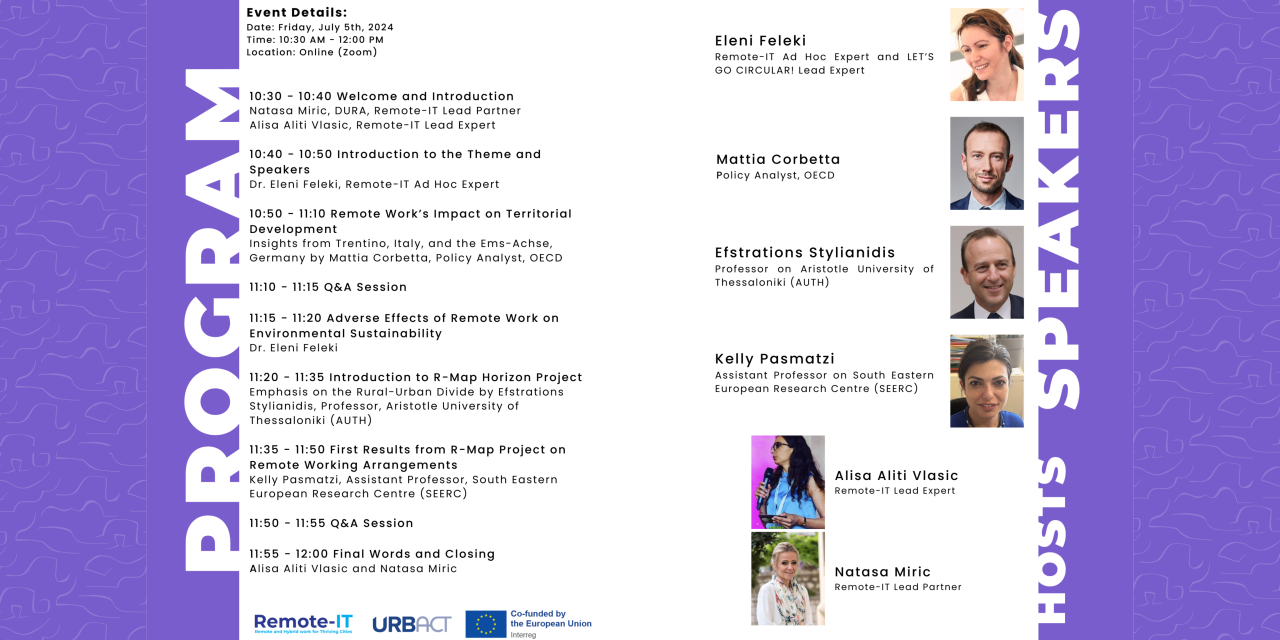Key Takeaways from the Forum
Mattia Corbetta emphasized that remote work is not a temporary trend but an ongoing revolution with significant and varied implications. He stressed the importance of continuing to question its impacts, particularly in 2024. Corbetta pointed out that there are two main approaches to managing remote work: a neutral stance or a proactive strategy. Public interests such as worker well-being, labor productivity, equitable job distribution, and sustainable mobility are at stake, which underscores the crucial role of public policy. The environmental impact of remote work, Corbetta argued, is a prime example of why its trajectory should be guided rather than allowed to unfold spontaneously. He also noted that remote work is increasingly featured in regional development strategies, often focusing on addressing labor shortages and other market issues. However, a lack of awareness and vision continues to hinder broader policy action, and Corbetta suggested that teleworking-centered regional development strategies should be a viable option.
Professor Stylianidis presented the R-Map Horizon project, highlighting its potential as a powerful tool for policymakers promoting sustainable development amid the rise of remote working. The project’s regional typologies, model, and platform aim to identify policy blind spots and suggest evidence-based actions tailored to regional needs. Stylianidis emphasized that the project contributes to the development of policies promoting sustainable regions, healthy communities, and reduced inequalities, while also bridging the urban-rural divide in line with several United Nations Sustainable Development Goals. The R-Map visualization platform will provide a comprehensive, updated, and interactive tool for researchers and policymakers to explore the spatial and environmental implications of remote work. Advances in scientific research on the impact of remote working arrangements will ultimately contribute to a more sustainable, resilient, and equitable future for all regions and communities.
Kelly Pasmatzi addressed the significant disparities in digital infrastructure and skills among European countries, with rural areas lagging behind. This lack of digital infrastructure and human capital in rural areas affects the attractiveness of remote work. Pasmatzi noted that while telework is a key component of EU digital policies, there are still gaps in infrastructure and policy harmonization that need to be addressed. She highlighted the consensus among stakeholders that remote work is here to stay, necessitating clear legal frameworks and inclusive policies. Furthermore, remote work impacts companies on various levels, including company culture and structure, management roles, and financial state, making dialogue between companies and policymakers essential.
Eleni Feleki discussed the complex relationship between remote work and the green transition. While it might initially seem obvious that remote work positively affects the environment by reducing commuter traffic and carbon emissions, Feleki pointed out that this relationship is influenced by numerous variables and contextual factors. She questioned whether remote work is genuinely a driver for the green transition and whether current policies are designed with an integrated approach that considers all aspects affected by remote work. Given the limited research and the complexity of the interrelationships involved, Feleki emphasized the need for future investigations to build on detailed data to better understand the net effects of remote work on the green transition.
Written by URBACT expert Eleni Feleki.


